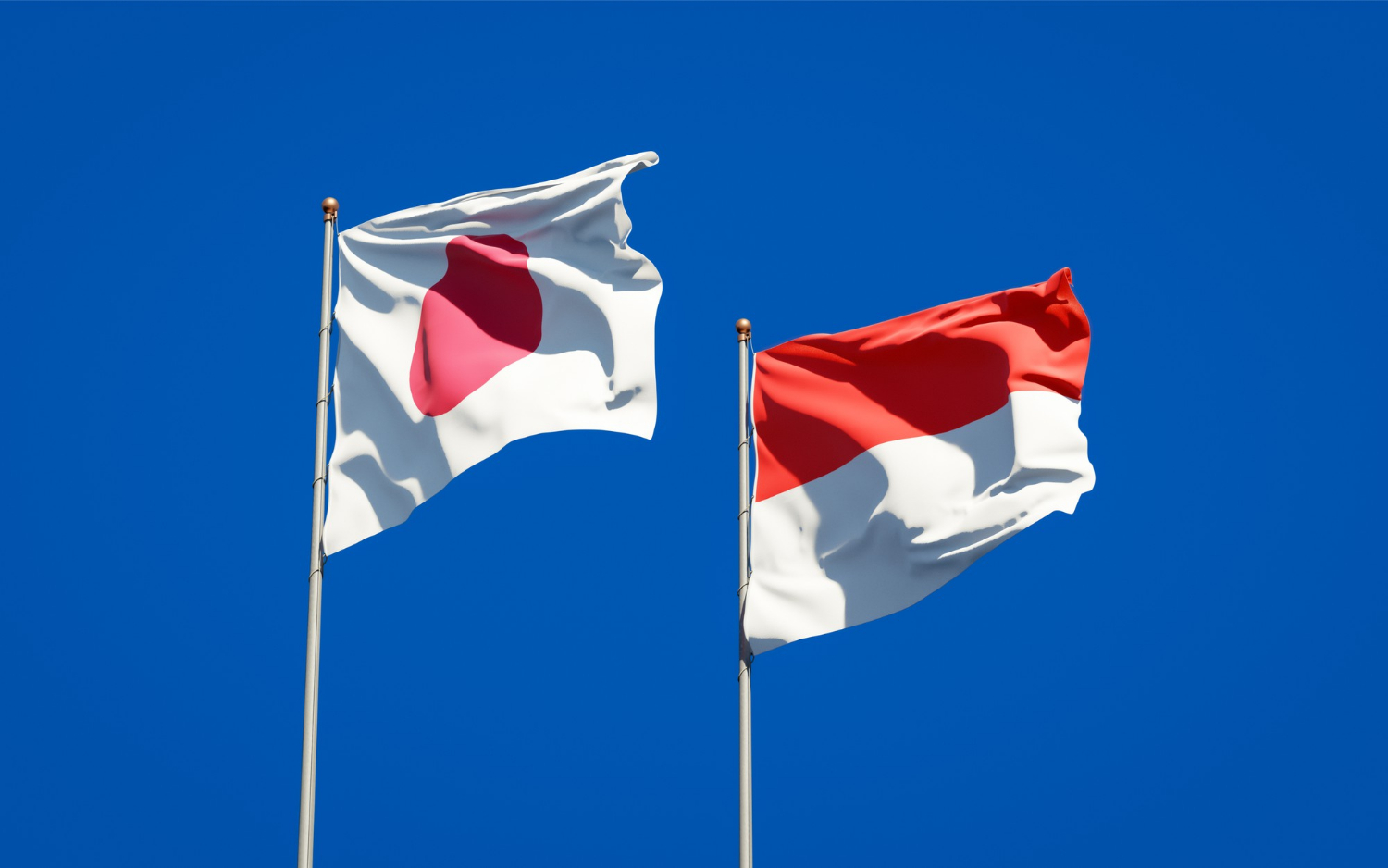
Why Japan Values Indonesia So Much with Big Investment?
October 11, 2022
Apakah Anda Tertarik untuk Masuk D2 Bahasa Jepang?
January 21, 2023The relationship between Japan and Indonesia has been a rocky one, with a history of colonization, occupation, and economic competition. However, in recent years the two countries have been working to improve relations and build a stronger business relationship. The industrial sector is one area where the two countries have been collaborating more closely. In this blog post, we will explore the industrial business relationship between Japan and Indonesia, and how it is benefiting both countries.
History of the Japan Indonesia relationship
The Japan Indonesia relationship is one of the oldest and most important in Asia. The two countries have a long history of trade and cultural exchange, dating back to the 7th century.
In the modern era, the relationship between Japan and Indonesia has been shaped by a number of factors, including the rise of both countries as regional powers, their shared experience of colonialism, and their close economic ties.
Since the end of the Second World War, Japan and Indonesia have developed a strong economic relationship. Japanese investment has played a key role in Indonesia’s industrialization, and today Indonesian exports to Japan are worth billions of dollars each year. Tensai Karawang: Learning Indonesian for Japanese.
The two countries also cooperate closely on regional issues such as security and maritime disputes. In recent years, they have worked together to address the threat of terrorism and promote peace and stability in Southeast Asia.
The industrial business relationship between the two countries
The industrial business relationship between the two countries is strong. Indonesia is a key market for Japanese companies, and the two countries have been working together closely to promote industrial development.
The two nations have recently signed a number of agreements to advance collaboration in the industrial sphere. They agreed to collaborate on the research and development of upcoming automotive technologies in a contract that was signed in 2016. A deal on cooperation in electric vehicles and batteries was signed in 2017.
These agreements have helped to create a framework for cooperation between the two countries in the industrial sector. They have also led to increased investment by Japanese companies in Indonesia.
Some of the key areas of cooperation between the two countries include:
– Promoting research and development in next-generation automotive technologies;
– Supporting the development of electric vehicles and batteries;
– Cooperating in the field of standards and certification;
– Sharing knowledge and experience in industrial policy;
– Supporting small and medium enterprises; and,
– Strengthening economic cooperation
The benefits of the industrial business relationship
There are many benefits to having an industrial business relationship with Japan. For one, Japan is a world leader in many industries, such as automotive manufacturing, electronics, and robotics. This means that there is a wealth of knowledge and experience to be gained from working with Japanese businesses.
Another benefit is that Japan is home to some of the world’s most advanced technologies. By partnering with Japanese businesses, companies in Indonesia can gain access to these cutting-edge technologies and use them to improve their own products and services.
Finally, establishing an industrial business relationship with Japan can help Indonesian businesses tap into new markets. Japan is a major economic power with a large population of potential customers. By partnering with Japanese businesses, Indonesian companies can expand their reach and increase their sales.
The challenges of the industrial business relationship
The challenges of the industrial business relationship are numerous and varied. They include:
-The high cost of doing business in Japan, which makes it difficult for Indonesian companies to compete;
-The language barrier, which can make communication difficult;
-Cultural differences, which can lead to misunderstandings;
-Different business practices, which can make cooperation difficult;
-Political instability in Indonesia, which can make doing business there risky.
The future of the industrial business relationship
The industrial business relationship between Japan and Indonesia is set to become even stronger in the future. As the two countries continue to grow economically, they will become increasingly important trading partners.
There are a number of reasons why the industrial business relationship between Japan and Indonesia is set to become even stronger in the future. First, both countries are continuing to grow economically. This means that they will have more resources to invest in each other’s industries. Second, the two countries are becoming increasingly important trading partners. This means that they will be able to share more technology and expertise with each other. Finally, the two countries have a strong history of cooperation. This means that they are likely to continue working together closely in the future.
The industrial business relationship between Japan and Indonesia is set to become even stronger in the future. This will benefit both countries by allowing them to share more technology and expertise with each other.
West Java, Especially in Karawang is Area Where Japan Industries Grow Rapidly
West Java is a province in Indonesia that is home to many Japanese industries. The province, especially the city of Karawang, has seen a rapid growth in these industries in recent years.
There are several factors that have contributed to the growth of Japanese industries in West Java. The first is the increasing number of Japanese companies doing business in Indonesia. These companies are attracted by the growing Indonesian economy and the large potential market here.
Another factor is the improving infrastructure in West Java. The government has been investing heavily in improving roads, ports, and other infrastructure facilities. This has made it easier for Japanese companies to set up operations in the province.
The third factor is the skilled labor force available in West Java. There are many young people here who are willing to work hard and learn new skills. This makes it an attractive location for Japanese companies looking to set up factories or other operations here.
All of these factors have contributed to the rapid growth of Japanese industries in West Java, especially in Karawang. This trend is expected to continue as more and more Japanese companies look to expand their operations into Indonesia.
As the picture above, KIIC Karawang is one of industrial cities in Indonesia with 90 percent of the business plants owned by Japanese. The city has a strategic location since it is adjacent to the capital city, Jakarta. This makes Karawang as an alternative investment destination for foreign investors, especially from Japan. Various industries have been established in the city, such as automotive, electronics, and chemicals.
Related to Industrial Relationship, Why Japanese Must Learn Indonesian?
The Indonesian archipelago has a long history of relations with the Japanese islands. The first recorded contact occurred in the 7th century, when a Japanese Buddhist priest traveled to Indonesia and stayed for several years. In the 12th century, Japanese traders began settling in Indonesia, and by the 16th century, there was a thriving trade relationship between the two countries.
During the colonial era, Japan and Indonesia were both under European rule. However, they maintained close ties, with Japan providing economic assistance to Indonesia during its struggle for independence. Since then, relations between the two countries have continued to be strong.
Today, there is a large community of Japanese people living in Indonesia, and many Indonesian businesses have partnerships with Japanese companies. The two countries are also working together to improve industrial relations. In particular, Japan is helping Indonesia to develop its manufacturing sector so that it can become more competitive in the global market.
One reason why industrial relations between Japan and Indonesia are so important is because of the large number of Japanese companies that have invested in Indonesia. As of 2016, there were over 3,000 Japanese companies operating in Indonesia, employing around 1.5 million people. These companies are attracted by Indonesia’s cheap labor costs and its large market potential.
However, there are some challenges that need to be addressed in order to improve industrial relations between Japan and Indonesia. One issue is language barriers; many Japanese companies do not provide training for their Indonesian employees on how to speak Japanese. This can make communication difficult and lead to misunderstandings.
Another challenge
Another challenge is the different business cultures of the two countries. Japanese businesses tend to be more hierarchical, while Indonesian businesses are more informal. This can make it difficult for Japanese managers to understand and work with their Indonesian counterparts.
Despite these challenges, there is a lot of potential for further cooperation between Japan and Indonesia. By working together, the two countries can improve their industrial relations and create more opportunities for investment and trade.
We, Tensai Nihongo Bunka Gakuin, Provide Language Learning Service in Karawang for Japanese to Learn Indonesia
Tensai Nihongo Bunka Gakuin is a Japanese language school which has been providing language learning services in Karawang, Indonesia since 2011. The school offers classes for both beginners and advanced students of Japanese, as well as special courses for those who wish to learn Indonesian.
The school’s location in Karawang is convenient for those who are working in the many Japanese factories located in the area. In addition, the school offers a support program for students who wish to take the JLPT (Japanese Language Proficiency Test).
The Tensai Nihongo Bunka Gakuin team is composed of experienced and certified Japanese language teachers, all of whom are native speakers. The team is dedicated to helping their students reach theirLanguage learning goals, whether it be for business or personal purposes.

